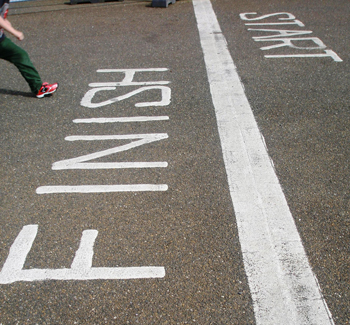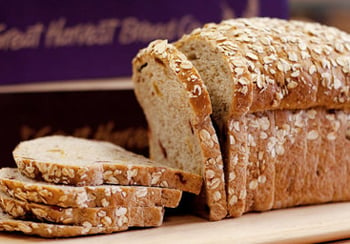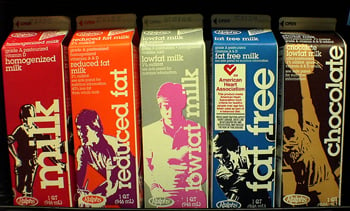
After you’ve finished your race, what and when you eat is not necessarily a ‘big deal’ unless you used that race as a training tool for the ‘big one’ you are ultimately preparing for, or if you’re planning on a good workout within the next 24 hours. This is because your post race meal can have a huge impact on energy stores for tomorrow’s workout, rehydration, and muscle repair, which will all have a direct affect on how well you perform the next day. The better you can consistently train, the more prepared you will be for your next event.
Follow these three steps below to improve your recovery and allow you to perform at your best time and again, even after a tough workout. The goal with your recovery meal is to rehydrate and restore electrolytes, replenish energy (glycogen) stores through carbohydrate ingestion, and consume the right amount of protein to allow for muscle repair and growth.
- Rehydrate immediately after the race! Drink about 16-24 oz of fluid for every pound lost during your event. Kill two birds with one stone by consuming a recovery drink with electrolytes after your event or consume a salty food (such as crackers or pretzels) with water to rehydrate and replenish electrolytes lost during physical activity. Continue to sip fluids throughout the rest of the day.
- Eat your carbs! Eating your carbohydrates within the first 30 minutes to an hour post workout will allow for the highest rate of glycogen synthesis. Glycogen is the form of energy that is stored in your muscles and liver as the ‘reserve’ energy which will power you through a long run or century ride on your bike. With intense workouts, lasting about two hours or more, your glycogen stores will be depleted and without ‘refilling’ these fuel stores you are more liable to hit the wall much earlier the next day. What carbohydrates are the best?Higher glycemic carbohydratesare the best for refueling as these have shown higher glycogen levels as compared with foods of low glycemic value.

Milk, especially chocolate milk, is an excellent and easily attainable high carbohydrate protein rich recovery drink. Consume about 1-1.5 grams of carbohydrate per kilogram of body weight initially within the first 30 minutes post exercise and repeat every two hours or transition into a normal eating pattern.
- Power up with protein! Protein will help aid in muscle repair and growth. When you exercise, your muscle fibers not only expand and contract they also tear. To repair those tears your body needs protein (and carbohydrate intake to spare the protein). When the torn muscle fibers are repaired they are enlarged because of the extra tissue which is one reason why muscles are more visible in those who consistently workout. You can get the protein you need for muscle repair and growth from many different sources including vegetarian sources. If eating plant sources of proteins just be sure that you are consuming complementary proteins so you can get the full spectrum of amino acids necessary to build muscle. Animal proteins such as eggs, milk, chicken, steak, cheese, etc are complete proteins that provide you will all of the amino acids you need. Consume about 25 to 30 grams of protein post workout to stimulate muscle repair and growth. There is little chance protein loading above this given range will show any benefit as protein synthesis has shown to have no increases once the 30 gram intake level has been met.
What is your favorite way to refuel?
References:
Position of the American Dietetic Association, Dietitians of Canada, and the American College of Sports Medicine: Nutrition and Athletic Performance. J Am Diet Assoc. 2009. 109:509-527.
Paddon Jones D and Kundrat S. The Secrets of Healthy Aging: Maximizing Muscle, Movement, and Mobility. Academy of Nutrition and Dietetics Food and Nutrition Conference and Expo. Pennsylvania Convention Center, Philadelphia, PA. 8 Oct 2012. Conference Presentation.
Photo Credits:
Finish Line I like via photopin cc
Milks osakasteve via photopin cc



